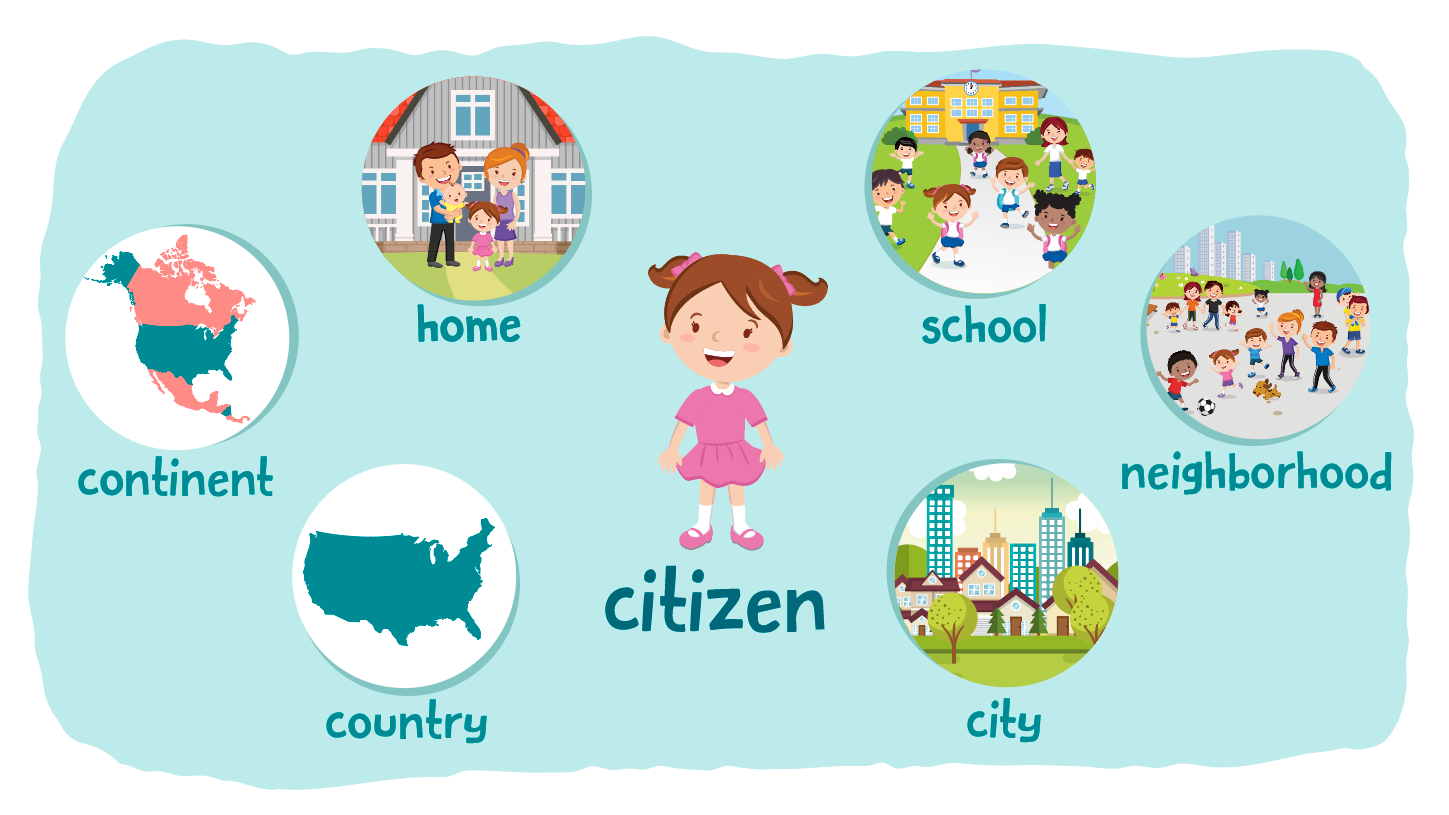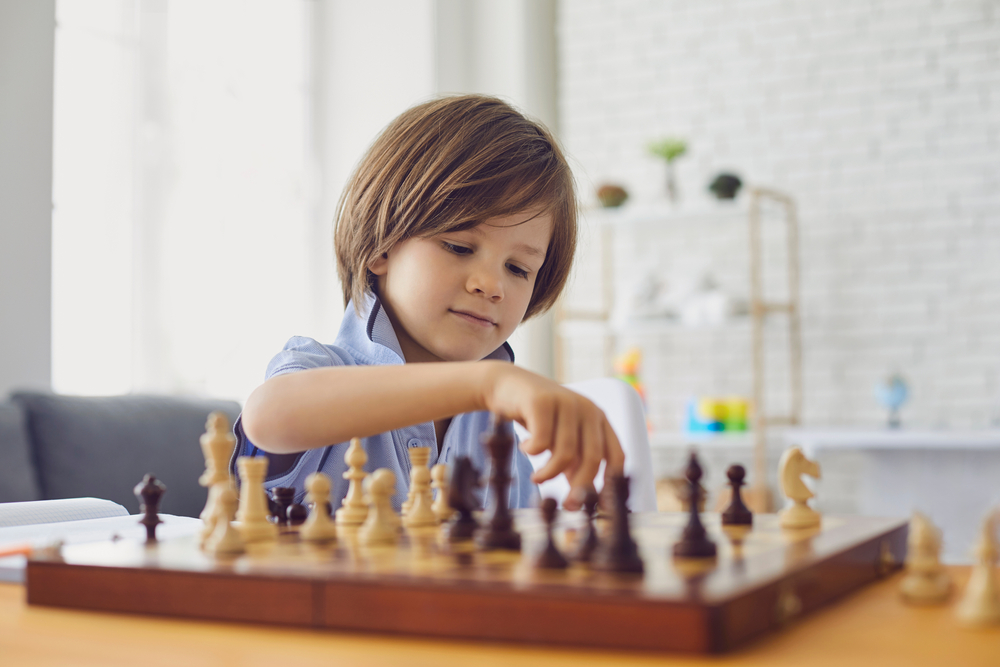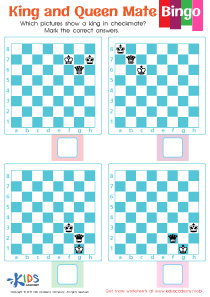Cognitive Development Normal Chess Worksheets for 6-Year-Olds
4 filtered results
-
From - To
Welcome to our “Cognitive Development Normal Chess Worksheets for 6-Year-Olds” page! Here, young learners can engage their minds through fun and educational chess activities specifically designed to enhance cognitive skills. Our carefully crafted worksheets promote critical thinking, problem-solving, and memory retention while introducing the fascinating world of chess. Each activity encourages children to think strategically and develop their reasoning abilities, all in an enjoyable format. Perfect for both classrooms and home use, these worksheets support early learners in building foundational skills essential for academic success. Explore our collection and watch your child’s cognitive skills flourish as they enjoy chess!
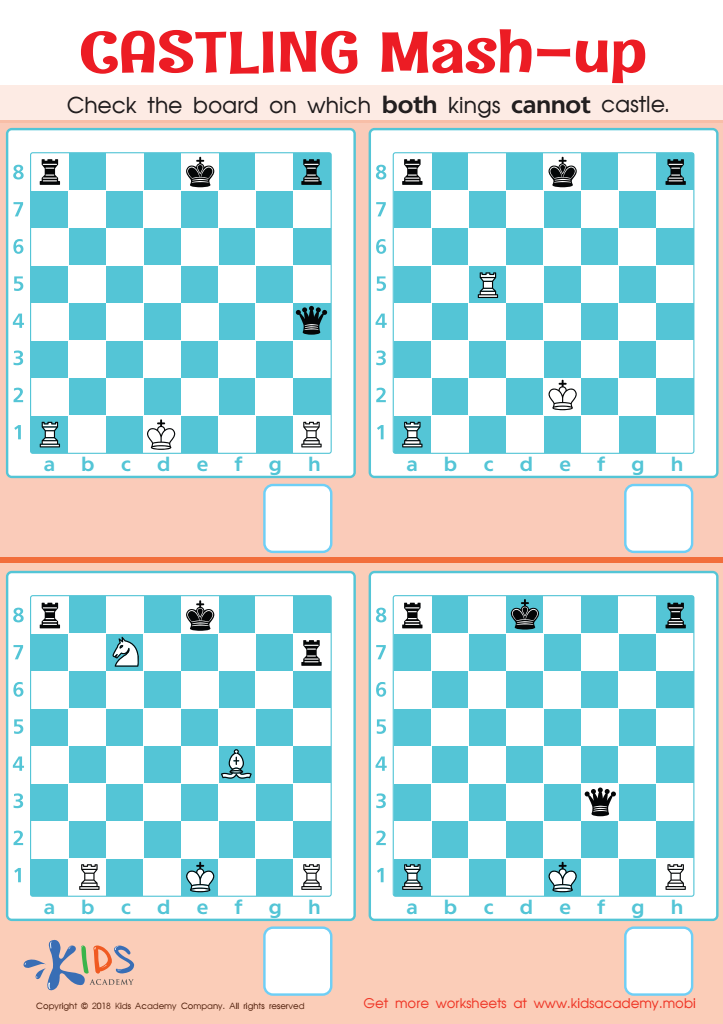

Castling Mash–up Worksheet
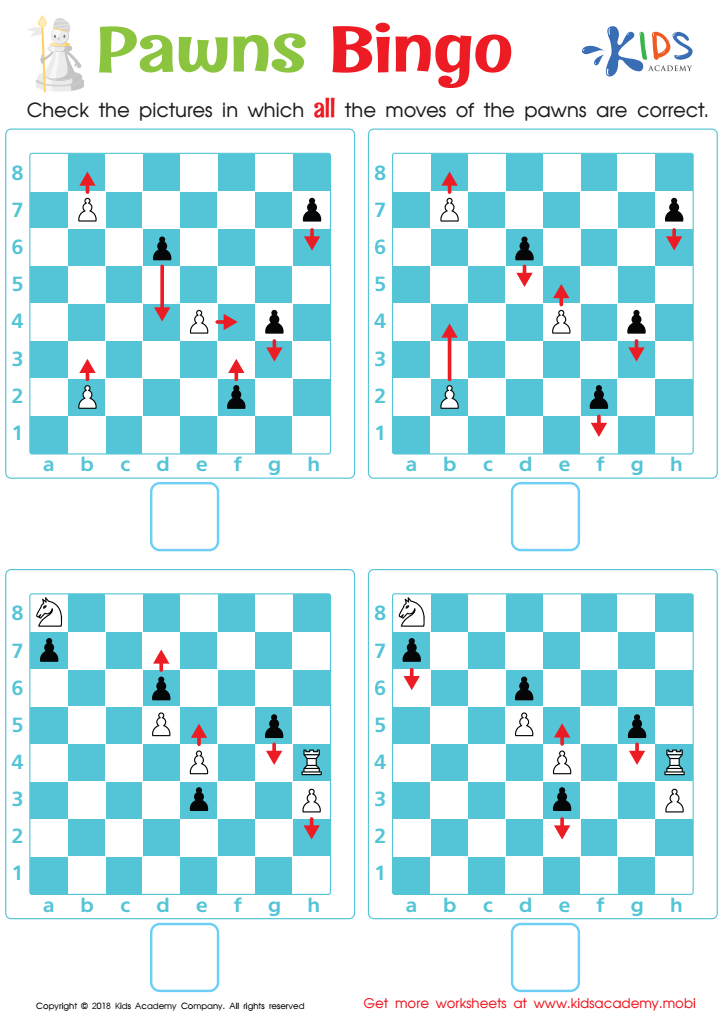

Pawns Bingo Worksheet
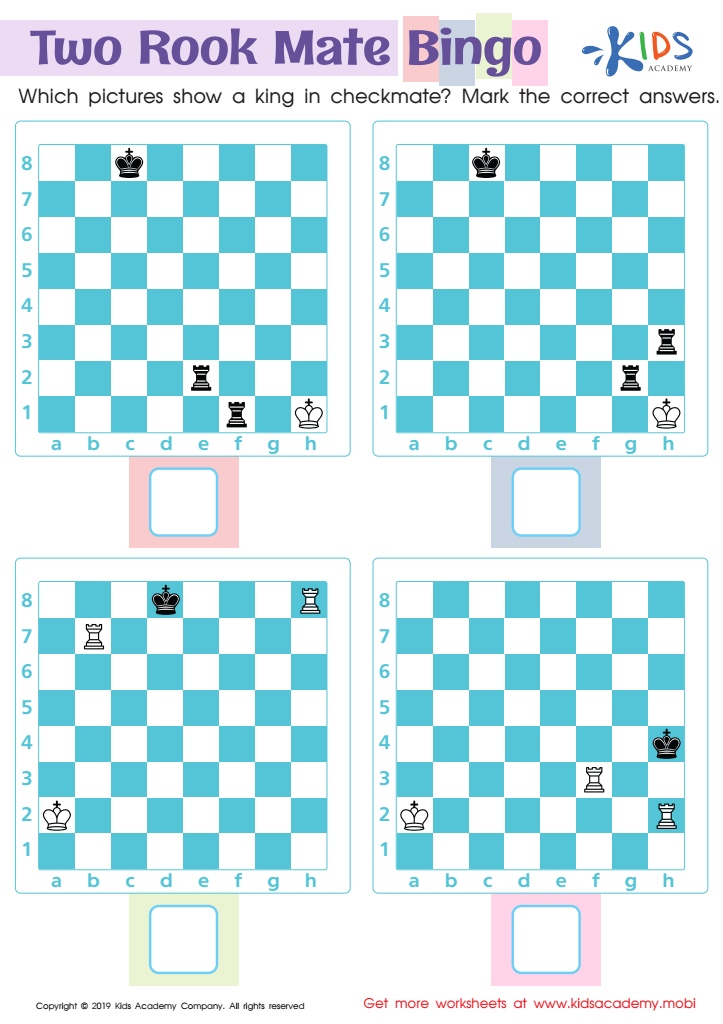

Two Rook Bingo Worksheet
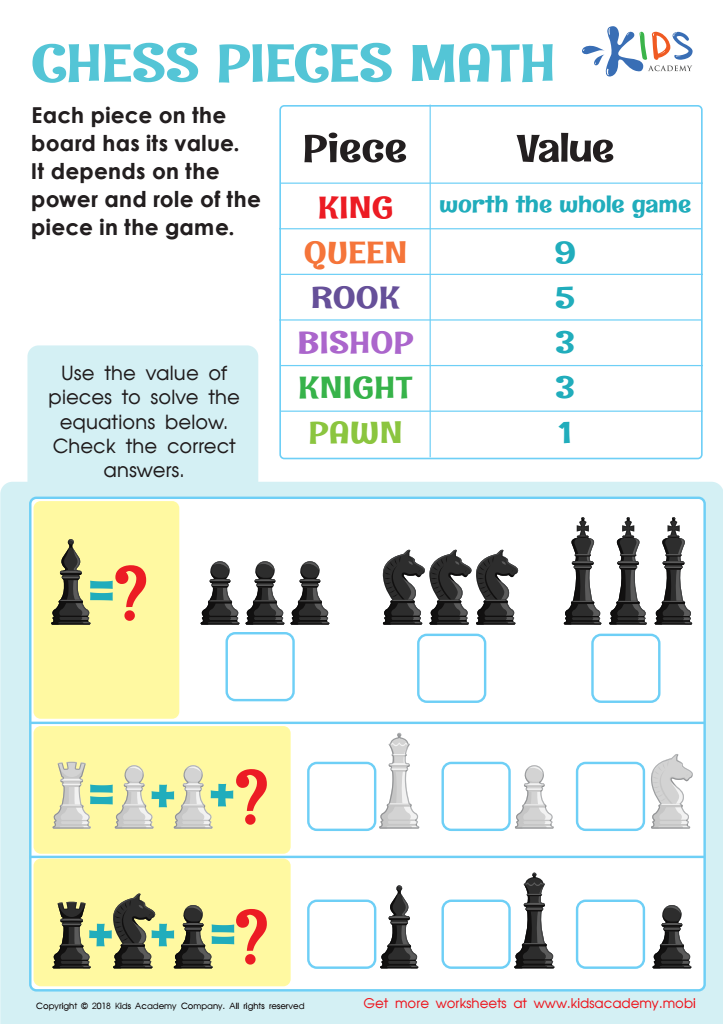

Chess Pieces Math Worksheet
Cognitive development in young children, especially around the age of six, is crucial as it lays the foundation for their future learning and problem-solving skills. Engaging in activities like chess at this stage offers myriad benefits. Chess requires strategic thinking, planning, and foresight, skills that enhance a child's cognitive abilities. Through the game, children learn to anticipate their opponent's moves, which fosters critical thinking and decision-making capabilities.
Moreover, chess promotes patience, concentration, and perseverance. As children learn to navigate the intricacies of the game, they also develop patience and the understanding that success often requires time and effort—an essential lesson for life. This focus on mental challenges can translate into improved academic performance across various subjects, particularly mathematics and reading.
For parents and teachers, encouraging chess means providing young learners with tools to enhance their cognitive skills in a fun and engaging way. It also nurtures social skills as children play with peers, fostering connections and teamwork. Overall, prioritizing cognitive development through chess activities contributes significantly to a child's overall growth, preparing them for more complex academic challenges ahead. Investing time in teaching chess is an investment in a child’s lifelong learning journey.
 Assign to My Students
Assign to My Students




